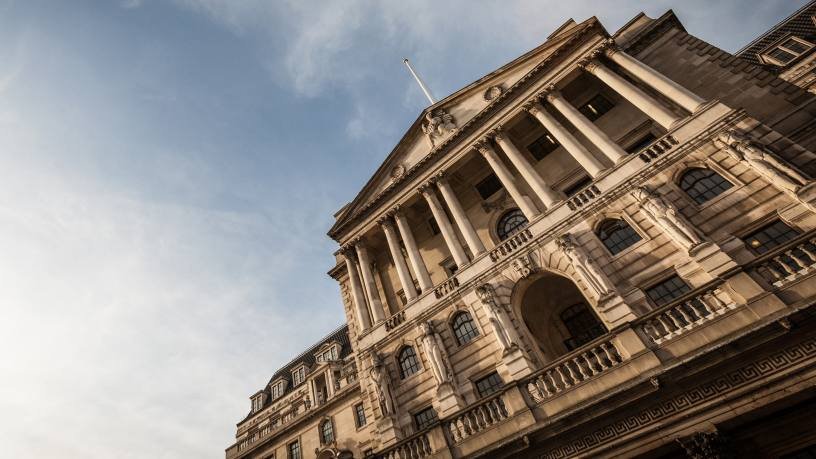Pressure is mounting on the UK government to publish its framework for regulating stablecoins as other jurisdictions push further ahead with digital assets regulation.
A coalition of UK and international trade bodies wrote last week to the UK government to clarify its position on digital assets and urged it to follow the US in providing stronger leadership on blockchain.
It said the UK should follow the lead of the US and appoint a “blockchain special envoy”, a role which in addition to dealing with domestic policy “would act as a global ambassador” and “ensure that regulation and innovation evolve hand in hand”.
Trump appointed venture capitalist David Sacks as the White House’s artificial intelligence and cryptocurrency tsar in December.
A stablecoin framework is expected to be published in the UK soon but continued delays risk leaving the country trailing further behind other jurisdictions, said Riccardo Tordera-Ricchi, director of policy and government relations at The Payments Association, whose members include Barclays, NatWest and Lloyds.
“If the rumours are true, then the [UK] stablecoin framework is ready [and] was ready before the general election.”
The previous Conservative government set out plans to make the UK a global crypto asset technology hub in April 2022.
The trade bodies’ letter raised concerns that the UK could fall further behind other jurisdictions, such as the US, Singapore and Hong Kong, if it fails to provide clarity with a stablecoin framework.
Legislation more in line with the US approach rather than the EU’s Markets in Crypto-Assets regulation, known as Mica, could offer the UK a “Brexit dividend”, Tordera-Ricchi said.
However, the Bank of England is likely to push for a more “risk-averse” approach, said Rhys Bidder, deputy director of the Qatar Centre for Global Banking and Finance, a King’s College London research centre focused on central banks.
Bidder raised concerns about the Bank of England’s approach to digital money in a research note last week, which describes the bank as “too dogmatic and extreme in its views on money — and on stablecoins in particular”.
He is “less convinced” about the need for a special envoy at the government level, as suggested in the trade groups’ letter, but says the central bank should provide a “clearer voice” on digital money.
A spokesperson for the Bank of England said the bank is seeking to put in place a regulatory framework for stablecoins to operate in the UK.
“We are also considering the feedback received on our November 2023 Discussion Paper, which sets out our proposed regulatory framework for systemic payment systems using stablecoins and related service providers. We will continue to engage with trade bodies and stakeholders to gather views,” the spokesperson told The Banker.
Sir Jon Cunliffe, the bank’s former deputy governor, was regarded as “quite open” to many of the innovations around digital money, Bidder said.
However, since Cunliffe’s departure last year the bank has not had a similar advocate and would benefit from a “prominent person with an overarching remit around digital money”, he said.
Moreover, the central bank appears to be uncomfortable with stablecoins that are backed by anything other than reserves, Bidder said, which — among the jurisdictions that are open to stablecoins — places them on the “very extreme risk-averse side”.
“They’ve almost lost sight of the fact that very significant jurisdictions . . . have decided on what stablecoins are,” Bidder said.
The focus on the “singleness of money” is the driving force behind the Bank of England’s approach to stablecoins, Bidder said, which is the concept that all forms of money — whether digital or physical — should be valued on a one-to-one basis at all times.
“I think they’re very literal. [The] approach to singleness is distorting their broader approach to stablecoins,” he said.
“I don’t really see why there is such a delay to getting a clear statement of what their stablecoin framework is going to be,” Bidder said, pointing to several very “well-thought-out” existing frameworks, such as in Japan, Singapore and Hong Kong.
Tordera-Ricchi said further delays risk leaving the UK further behind other jurisdictions. The Financial Conduct Authority has “done its work” but is also held up until legislation is confirmed, he added.
“Mica is in force and not appreciated by the industry. Britain has the opportunity to have its own Brexit dividend. What are they waiting for?” Tordera-Ricchi said.
A spokesperson for HM Treasury told The Banker: “We are committed to a new UK financial services regulatory regime for crypto assets and are working at pace to deliver it. The new regime will give firms and investors both the regulatory stability, and the space and flexibility, to innovate and drive growth as we deliver on our Plan for Change.”
This article has been updated to incorporate HM Treasury’s comments

